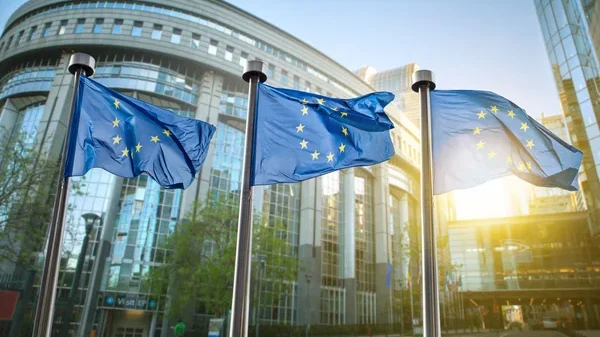Staff writer Ava Mellor examines the impact Isabel Oakeshott’s leaking of Matt Hancock’s WhatsApp messages may have on the Ghost Writing industry.
‘The Art of the Deal’- Donald Trump, ‘The babysitter’s club’- Peter Lerangis, ‘Goosebumps’- R.L. Stine, and most recently, ‘Spare’- Prince Harry. All of the above, plus many more of literature’s most acclaimed pieces have been anonymously written by ghost writers. Traceable to the 5th century, B.C., the art of writing for a more high-profile figure is a far from new phenomenon. However, in the 21st Century, the practice has become concentrated on one genre in particular: celebrity memoirs.
One ghost-writer, who’s recently become about as anonymous as you think you are on Twitter, is Isabel Oakeshott. In one of the most publicised breaches of a non-disclosure agreement (NDA), the journalist released 100,000 messages between former Health Secretary Matt Hancock and other members of government, having had access to the messages through writing his biography, ‘Pandemic Diaries’. Oakeshott since admitted violating the NDA, but explained she did so because of the grave national interest at stake, and would not have done so under other circumstances. The saga has left an overwhelming question on everyone’s lips; to what extent can one assume their privacy will be protected by an NDA, and what effect has this breach had on the landscape of celebrity memoirs?
Though common practice, non-disclosure agreements are a frequent grey-area in law and have been at the centre of many notorious legal battles, such as the case involving Stormy Daniels seeking to be released from her NDA with Michael Cohen (Donald Trump’s former personal attorney) in 2018. Legally binding, an NDA will include a condition or warrantee which, if breached, will make the contract void. NDA’s cannot force an individual to be silenced, they just formally state that if information is leaked, said individual will likely find themselves in court being sued. One such controversy sparked up during the height of the #MeToo movement and raised awareness of the misuse of NDAs to protect high profile individuals. The ‘Can’t buy my silence’ campaign exposed the use of such agreements to disguise racism, sexual misconduct, discrimination, and other human rights violations. The campaign shed light on the misuse of NDAs to agree upon legal settlements through ensuring victims will not disclose information to non-legal professionals, a practice that is now being cracked down on.
More recently, Parliament has voted on the Higher Education (Freedom of Speech) Bill that would ban the exploitation of NDAs in higher education. The Bill comes from a pledge signed by 72 UK universities to prohibit the use of non-disclosure agreements when dealing with sexual harassment complaints, bullying, and other misconducts. However, legislation surrounding the controversy of agreeing to remain silent has not so far reached the field of literature, and perhaps for a logistical reason. Ghost-writers typically agree to remain silent as a fundamental part of their job. If they were not discrete, then they would merely be the recognised author and, significantly, would not be trusted with the public figure’s personal information, defeating their contract entirely. Yet in the recent Hancock – Oakeshott case, the factor of public interest must be considered. As explored above, an NDA contract is based primarily on trust as repercussions for a breach do not always prevent the contract from being broken. In a statement, Hancock revealed that Oakeshott’s publishing of private and highly exposing messages is a ‘massive betrayal’, one which has left many speculating on the future of the ghost-writing industry.
A tight-knit community, some of the industry’s most acclaimed ghost-writers such as Andrew Crofts have since spoken out on the damage that Oakeshott’s actions have had on the sector. However, it is still acknowledged that NDAs in publishing are common practice and usually not broken as it is in no-one’s best interest to do so; the ghost-writer loses their contract, and the author loses their privacy. The uniqueness of Oakeshott’s case is an exception, not generally the rule. In this instance, avid anti-lockdowner Oakeshott and partner Nigel Rosser felt the leaked messages, that demonstrated misconduct in government regarding Covid-19 restrictions, being made public was in the interest of both themselves and the public. With this in mind, perhaps some guidance should be taken from think tank director Robert Colvile, who suggests-“The main lesson I’ve learned from this is not to hire someone who absolutely hates your signature policy as your ghostwriter”.
As of yet, it is uncertain whether Hancock will take legal action against Oakeshott. It has been announced by a spokesman that the former Health Secretary is ‘considering all options’. Investigations are being carried out into whether Oakeshott broke data protection laws, and also why Hancock entrusted such criticisable information with a high profile, anti-Covid restriction journalist. Hancock has, according to Oakeshott, made threats of legal action, but whether these will be followed through is unclear. In the meantime, the ghost-writing community continues to attempt to rise above the damage caused and regain the trust that it has held for centuries. So, whilst this political scandal may not have put an end to an industry founded upon discrepancy, it may cause high-profile individuals to think twice in the future over what information they give and who they give it to, regardless of whether an NDA has been signed or not.

















